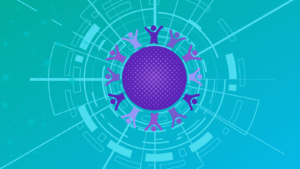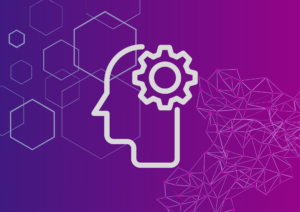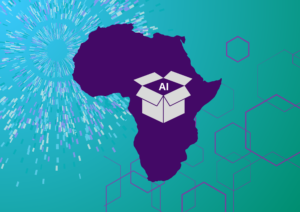A new data ecosystem based on a wide array of new data sources, data providers, and data analytics tools requires increased capacity among policymakers, as well as bridging the still existing digital divides, so that populations can participate and benefit from digital transformation. At the global level, both public and private sectors are facing increasing pressure to deal with the exponential growth of data production and use while addressing implications for data flow and data governance.
To help navigate new trends and address emerging data policy issues, the 2022 Program on Digital Transformation and Innovation in Latin America was conceived as a capacity-building program to engage policymakers in a multistakeholder and cross-sectoral debate on the challenges of digital transformation and innovation in Latin America and the Caribbean.
The Program was co-organized by the United Nations Economic Commission for Latin America and Caribbean (ECLAC), the development bank of Latin America (CAF), the Regional Center for Studies on the Development of the Information Society of the Brazilian Network Information Centre (Cetic.br|NIC.br), and the Datasphere Initiative, and took place on November 14 and 15, 2022 in Montevideo, Uruguay.
This blog shares insights generated from the sessions and highlights key takeways from panelists as they discussed national strategies and shared good practices implemented to foster innovation and capacity building in the region.
New trends and challenges of advanced technologies were explored by panelists, including Artificial Intelligence, 5G, and sandboxes for data
“New forms of innovation should be implemented by governments to improve the socio-economic development in Latin America”, shared Ana Rivoir, Researcher, and Professor at Universidad de la República del Uruguay.
Merve Hickok, Research Director of the Center for AI and Digital Policy, and Founder of AIethicist.org, presented the Artificial Intelligence and Democratic Values Index, a report that documents and compares AI policies and practices of over 50 countries, including Brazil, Argentina, Uruguay, and Colombia.
Carolina Rossini, Director of Research and Partnerships at the Datasphere Initiative, introduced the potential of Sandboxes for data, which are testing environments where hosted data can be accessed and used (“operational”) or collaborative processes where regulators and firms evaluate new technologies within a regulatory framework (“regulatory”).
“In Latin America, Sandboxes have already been implemented in the telecommunications industry. At the Datasphere Initiaitive we are proposing an innovative model of cross-border sandboxes to make data more available and accessible across borders and sectors”, said Ms Rossini.
Connectivity was underscored as an important barrier to overcome
Fernando Rojas, ECLAC Senior Assistant for Economic Affairs, presented a diagnostic on the levels of connectivity and access to digital technologies in the different countries of Latin America and the evolution of the main gaps. In this regard, he pointed out that “it is not possible to talk about the digitization of the economy if the massification of effective connectivity is not achieved.”
Panelists offered examples of tools to measure the region’s digital ecosystem
Cetic.be led a session on measuring the digital ecosystem in Latin America, featuring Raúl Katz (Telecom Advisory Services), who shared the main theoretical fundaments for approaching the issue and presented the Observatory of the Ecosystem and the Digital Economy developed by CAF. Ana Laura Martínez (Cetic.br) and Susana Dornel (Agesic, Uruguay) presented the models implemented in those countries, including their governance and a selection of relevant data, stressing the importance of counting on relevant, timely and disaggregated measurement models and indicator systems in the public policy cycle, particularly in the context of the digital economy.
Martínez stressed that ‘the inclusion, for the first time, of specific targets for the objectives in the 2024 Digital Agenda (eLAC 2024) is a precious opportunity for the region to jointly produce a set of comparable, harmonized indicators, and cooperation networks will be key to achieve this goal’.
Digital government agendas vary but coordination is important
The session on institutional experiences and models for digital transformation, organized by Agesic Uruguay, in addition to sharing a variety of strategies, models, recommendations and trends on digital government in the region, gave space for a fruitful and active exchange among representatives of most countries in Latin America about the digital government agendas, challenges and strategies in place.
The Program offers the possibility for government representatives, private service providers, academic experts and representatives of the technical community among others, to share experiences and exchange visions for the future of the region’s digital ecosystem.
More information about the organizers and their work to foster inclusive digital transformation across Latin America and the Caribbean can be found below.





